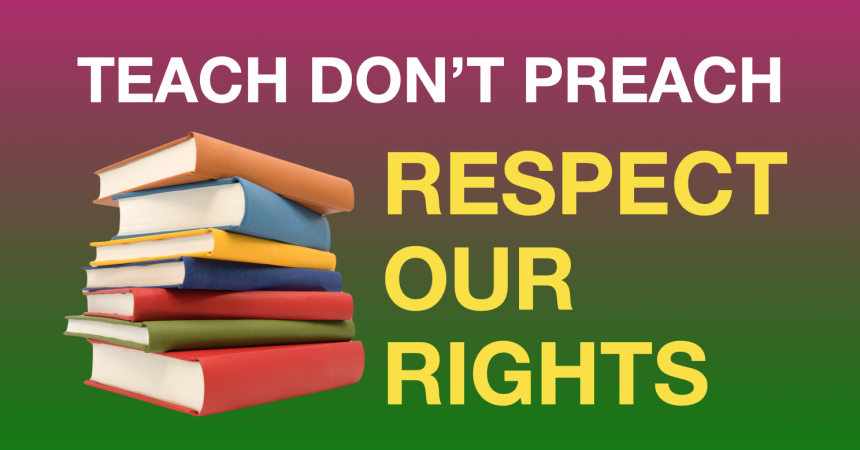
(2/7) Before the NCCA Committee was Formed
Atheist Ireland has used the Freedom of Information Act to examine more than 20 years of public records, describing how the Religious Education Curriculum at second level was created and delivered. What we have found is Church and State tightly entwined, in a process that overtly breaches the constitutional rights of parents and children. Documents obtained under Freedom of Information, reveal how this situation was arrived at, with the full knowledge of the constitutional rights that were being breached by both Church and State bodies.
Before the NCCA Committee was Formed
The idea of a State curriculum for Religious Education had been discussed for decades, but the project that eventually enabled it to happen began work in the early 1990s. As part of the development of the State junior cycle curriculum for Religious Education, the National Council for Curriculum and Assessment (NCCA) formed a Religious Education Course Committee (Post Primary).
This Course Committee knew that their constitutional obligation was to develop a curriculum for a Religious Education course, which would be suitable for pupils and families of any faith or none. However, a long series of bilateral discussions with one particular denomination, the Roman Catholic Church, has undermined the constitutional rights of non-Catholics. The Catholic Church were given too much decision making power at the cost of abdicating state responsibility.
In 1886, the NCCA had met with the Roman Catholic Episcopal Commission on Catechetics, which is part of the Episcopal Commission for Catholic Education and Formation. The NCCA had suggested that the two bodies have more discussions about the the role of a statutory board in relation to syllabuses in Religious Education and their assessment through public examinations.
These bilateral engagements became more formal in 1989, when there was a meeting between the CEO of the NCCA and a “Sub-Committee of the Episcopal Commission on Developments in Education”. As one of the first steps towards producing a State curriculum ostensibly for students of all faiths and none, the NCCA asked the Roman Catholic Church to forward them the Church’s draft syllabus for Religious Education.
This formal bilateral engagement with the Irish Episcopal Conference continued for several years in advance of the Course Committee being created, such that the Roman Catholic Church was directly involved with that process. The tone of the correspondence from Albert O’Ceallaigh (as the CEO of the NCCA) to Bishop Smith (as the Secretary of the Episcopal Conference) shows the privileged role that the Catholic Church would have throughout the development of the curriculum. This included the NCCA asking the Bishops for guidance and advice, not only on the proposed curriculum, but also on who should be on the Committee that would develop it.
Consistent with the deferential tone adopted by the NCCA from the outset of this process, the bishops were quick to set out the ground rules for their engagement. On 17th August 1993, the Episcopal Conference wrote to the CEO of the NCCA to make it clear that if they didn’t like anything in the curriculum defined by the State, they would simply teach children something else.
As described in the letter above, when the formal Course Committee was created, Rev Dermot Lane was assigned to be the representative of the Roman Catholic Church on that committee, along with representatives of the Church of Ireland, Presbyterian and Methodist Churches. However, even though the Catholic Bishops already had a presence on the Course Committee, bilateral engagements between the CEO of the NCCA and the Irish Bishops’ Conference also continued.
The Roman Catholic Church did not hesitate to use this bilateral relationship, when they perceived that the work of the Course Committee was insufficiently compliant with their own denominational interests. As can be seen from this correspondence of 11th December 1996, Bishop Murray could simply lift the phone to the CEO of the NCCA and arrange a bilateral engagement on the content of the curriculum being produced by the Course Committee. There is no indication that other non-Catholic members of the Course Committee were aware that their work was the subject of separate discussions, which were proceeding over their heads.
The culmination of this independent bilateral process between the NCCA and the Roman Catholic Church, which was separate to the work of the Course Committee, was the formation of the “Religious Education National Development Project for Second Level Schools”. The Information Sheet below on this project from the Catholic Church, which includes notes made in the margins by the NCCA, is genuinely extraordinary. Obtained under Freedom of Information, this document describes how the Church appointed Mr. Harry Casey to coordinate the project and how he was released from the Department of Education specifically for this purpose.
This project is described as a process to be conducted in parallel to the ongoing work of the Religious Education Course Committee of the NCCA, in order to produce an alternative “Catholic syllabus for integration into all second level Religious Education courses”. It is clear from the hand written notes in the margin of this document, that the NCCA were extremely alarmed by this project.
The alarm related not just to the proposed parallel syllabus but to the overt plans to usurp the NCCA curriculum within Catholic schools. The intention of the project was clearly to ensure that any NCCA curriculum, which was to be suitable for students of all faiths and none, would not be delivered to students in Catholic schools in that form. Rather a separate “Catholic syllabus” would be prepared for “integration into all second-level Religious Education courses” in Catholic schools, including for those students taking the State Religious Education course.
On 11th March 1997, the Irish Episcopal Conference wrote to the NCCA in order to address concerns about their “Religious Education National Development Project for Second Level Schools”. While they stepped back from their proposals to develop a parallel syllabus, the proposed activities of Mr Casey in terms of integrating “the full richness of Roman Catholic tradition” within the NCCA curriculum remained.
The NCCA may have been expected to respond to this letter in order to defend the integrity of their curriculum. They may even have taken this opportunity to reiterate the constitutional limitations under which their curriculum was being developed. However, rather than insist that a State curriculum developed for students of all faiths and none, could not be delivered to students according to the faith formation requirements of one particular denomination, the NCCA simply accepted the approach of the Roman Catholic Bishops. On 11th April 1997, the CEO of the NCCA wrote back to the Episcopal Conference, thanking them for their cooperation.
However, the CEO of the NCCA didn’t just communicate the decision to accept the approach of the Roman Catholic Church back to Bishop Finnegan. This approach had also been first communicated to the NCCA Course Committee working on the Religious Education syllabus. On 4th April 1997, the minutes of the Course Committee had recorded that whatever curriculum they might produce would be “adapted” by Mr Casey’s “Religious Education National Development Project” before being taught in Catholic schools.
Demands from the Irish Catholic Bishops towards the NCCA continued. On 23rd October 1997, the Bishops sought a number of changes to the draft NCCA syllabus for the State Religious Education Course. Initially, they sought that “Full recognition will be given to the role of parents, and the Bishops for members of their churches, in the formation of children in their faith”.
The Irish Bishops also sought that “The manner and content of the approach to the study of an individual church in the syllabus should not be altered without the agreement of the church concerned”.
However, the demands of the Irish Bishops did not only relate to the course content. These demands also extended to the appointment of teachers as something that “must be addressed as a matter of urgency by the Bishops”. Such teachers would be State funded and ostensibly appointed to teach a State defined curriculum.
The final demand of the Irish Catholic Bishops is perhaps the most brazen. In bold type, the Church admonishes the NCCA that whatever the intention of the curriculum, the reality of the implementation of the course would be based on the ethos of the school. In fact, the Church suggests that the NCCA should drop the pretence in their documents of a curriculum intended for students of all faiths and none, in order to state instead that catechesis would be performed by school patrons.
This is then the second level Religious Education course that is being taught in Irish schools today. What the NCCA describes to parents as a course that is suitable for children of all faiths and none, has in fact been usurped by denominational interests so that faith formation is in practice integrated within the content. It is not just the NCCA that were aware of this either. The then Minister for Education, Michael Woods, was also clearly aware that in the context of the work of the NCCA, the school patrons would continue to decide how Religious Education content would be delivered to students. On the 2nd of June 2001, he wrote to the National Association of Post Primary Diocesan Advisers, making this clear.
Atheist Ireland has obtained additional documents under Freedom of Information, which further describe how the State Religious Education curriculum produced by the NCCA was compromised.
The final Document produced by the Church is the Guidelines for the Faith Formation and Development of Catholic Students. It is still in place today and is the basis for the delivery of the State Religious Education course to all religions and none. Parents are never informed that this is happening.

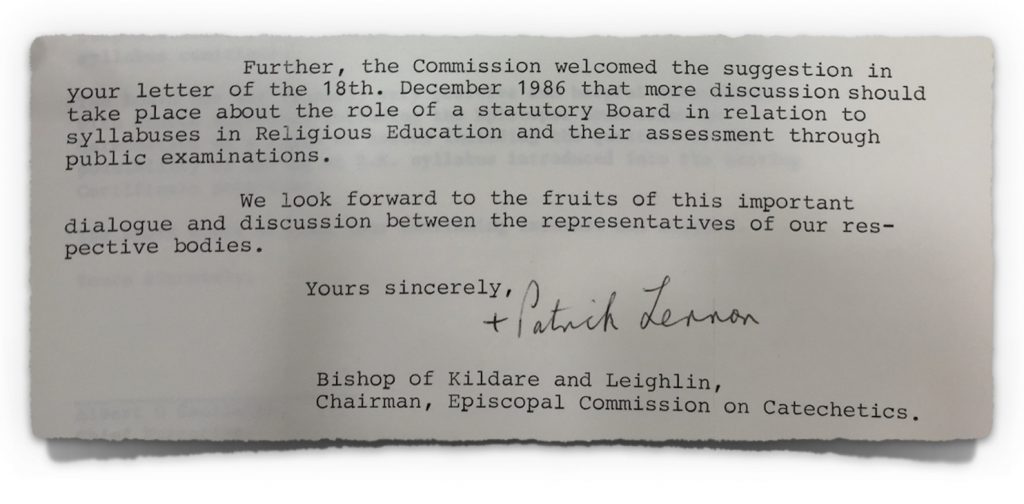
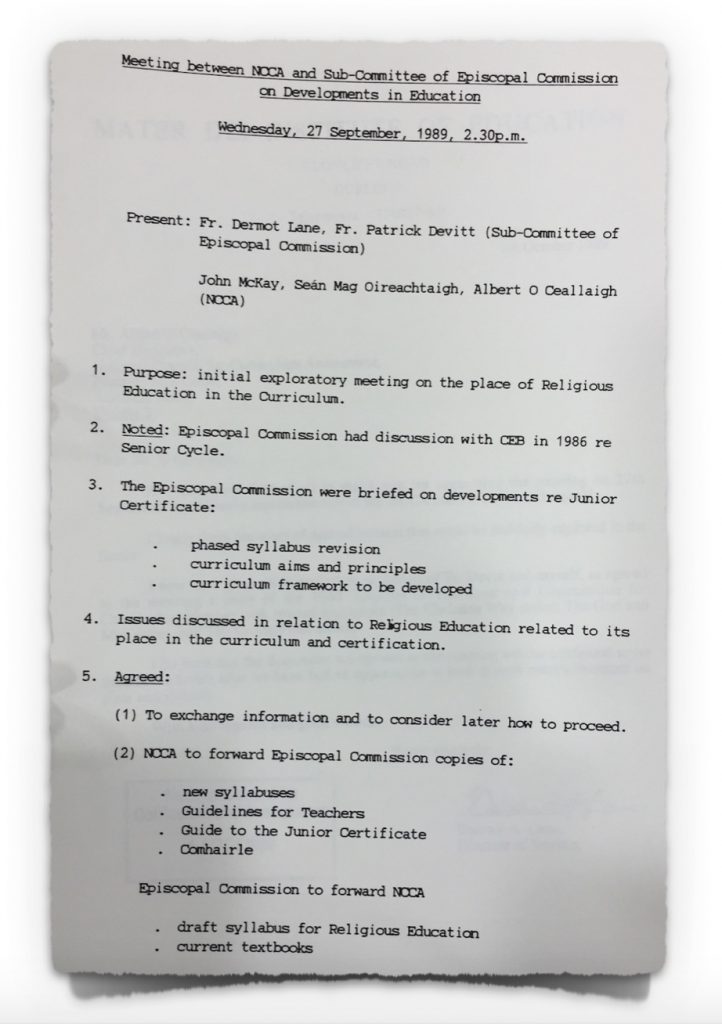
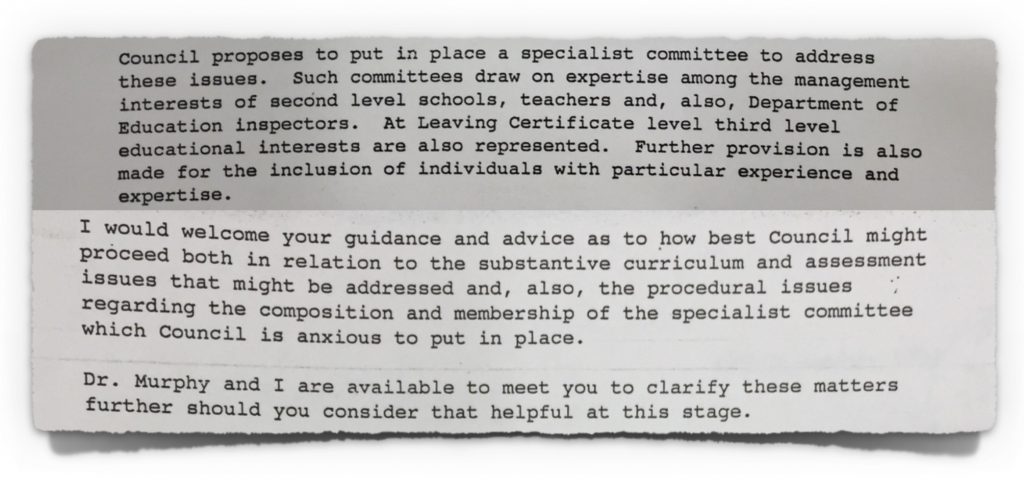
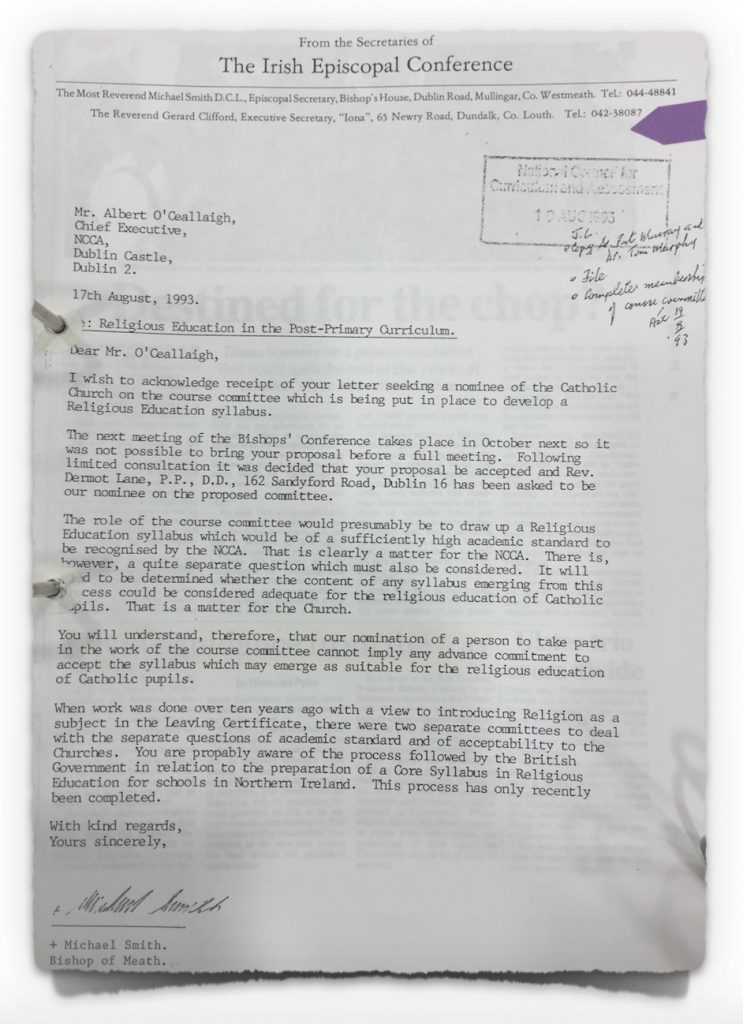
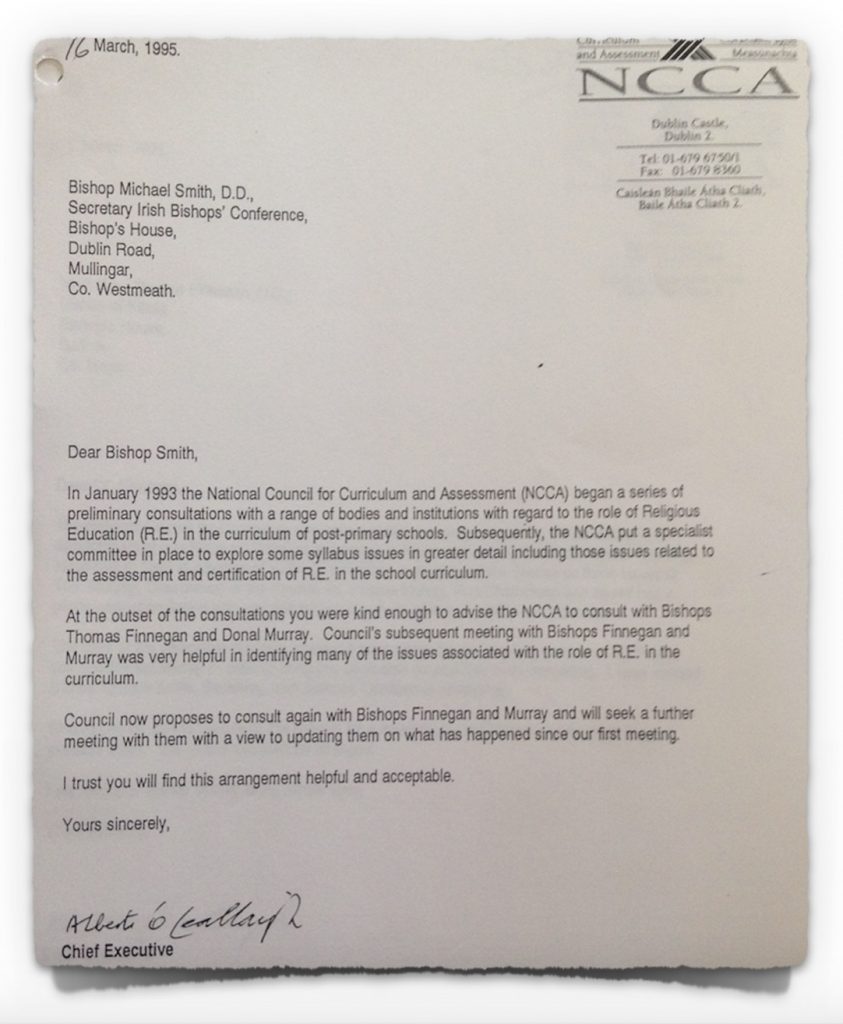
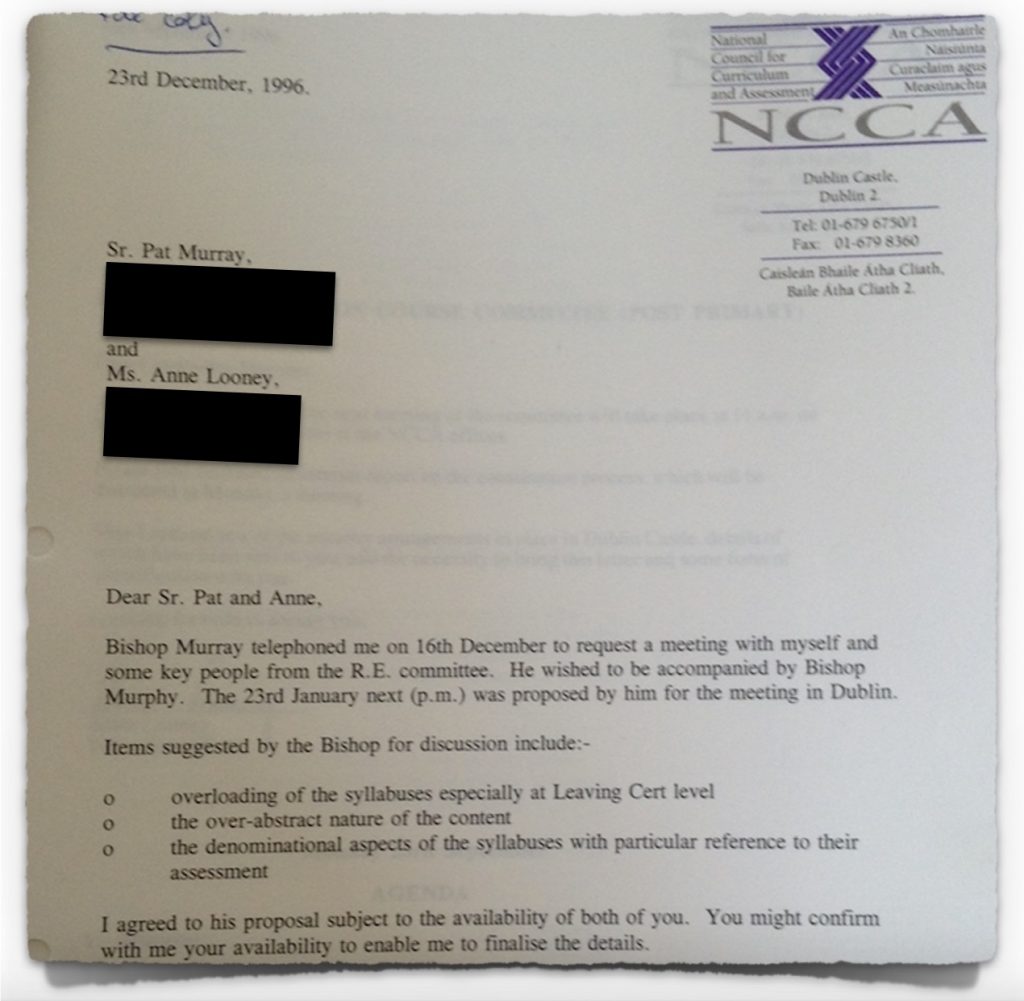
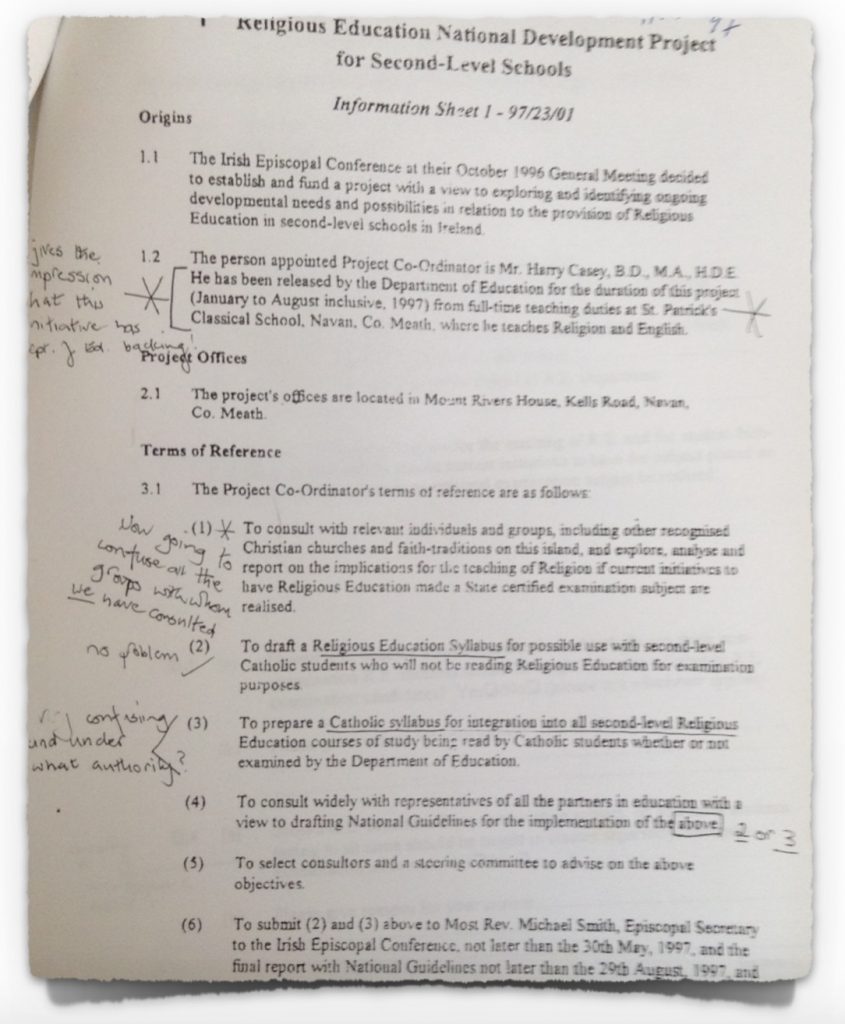
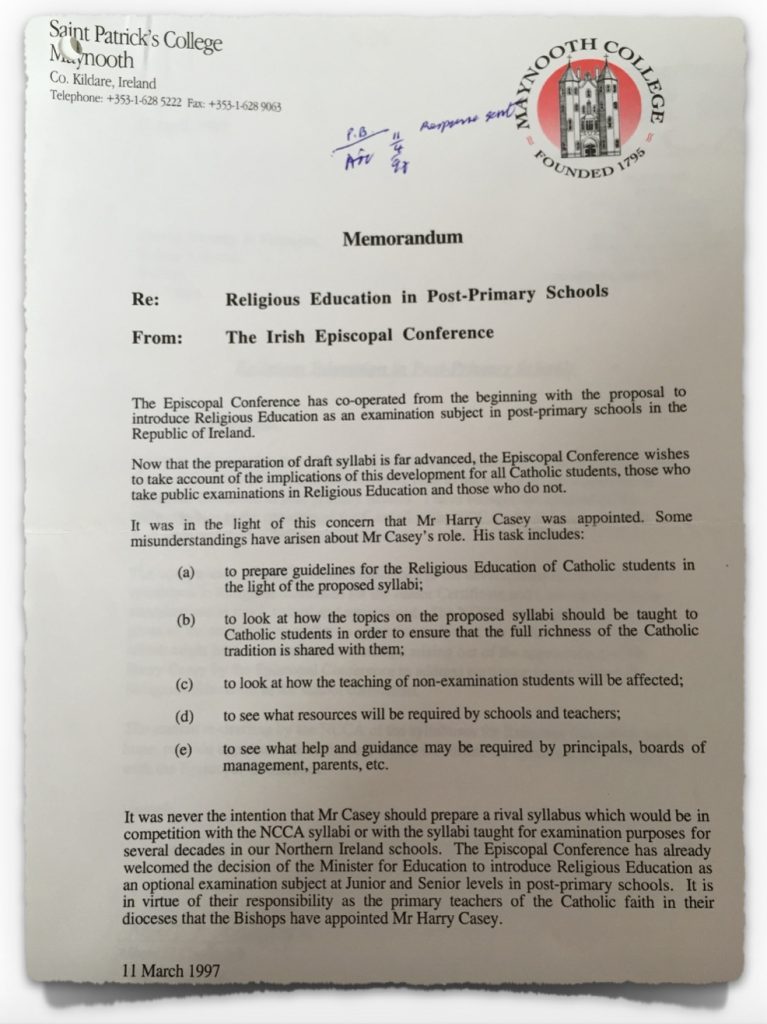
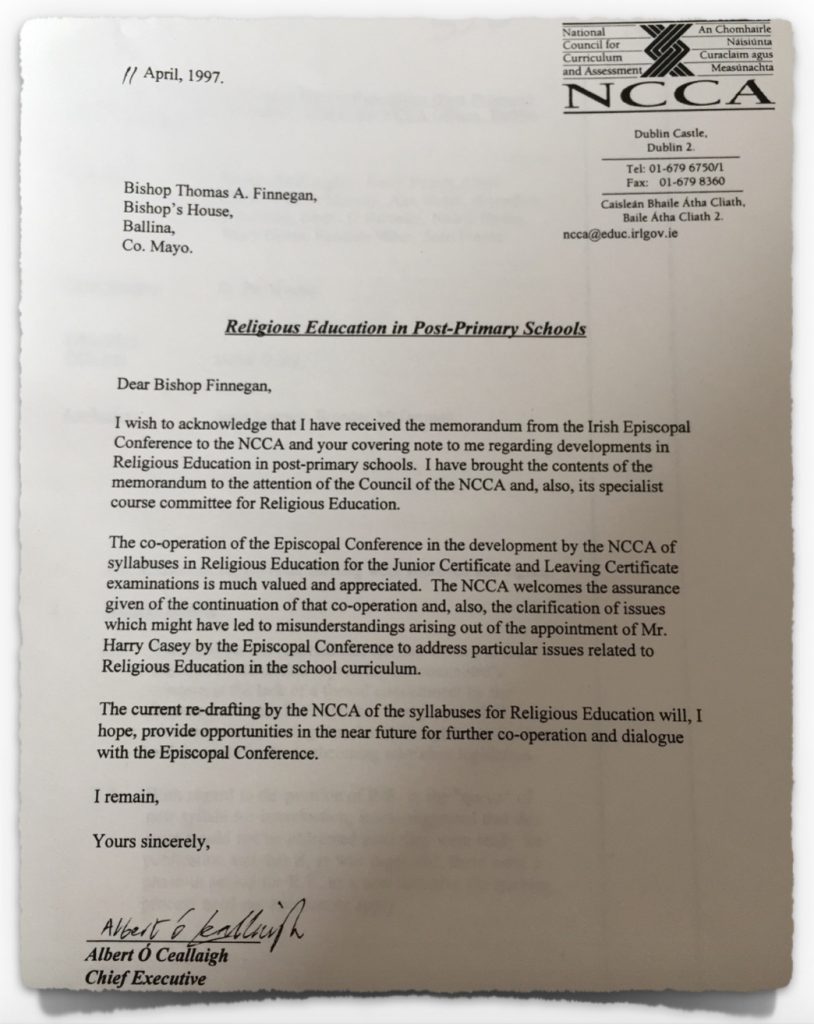
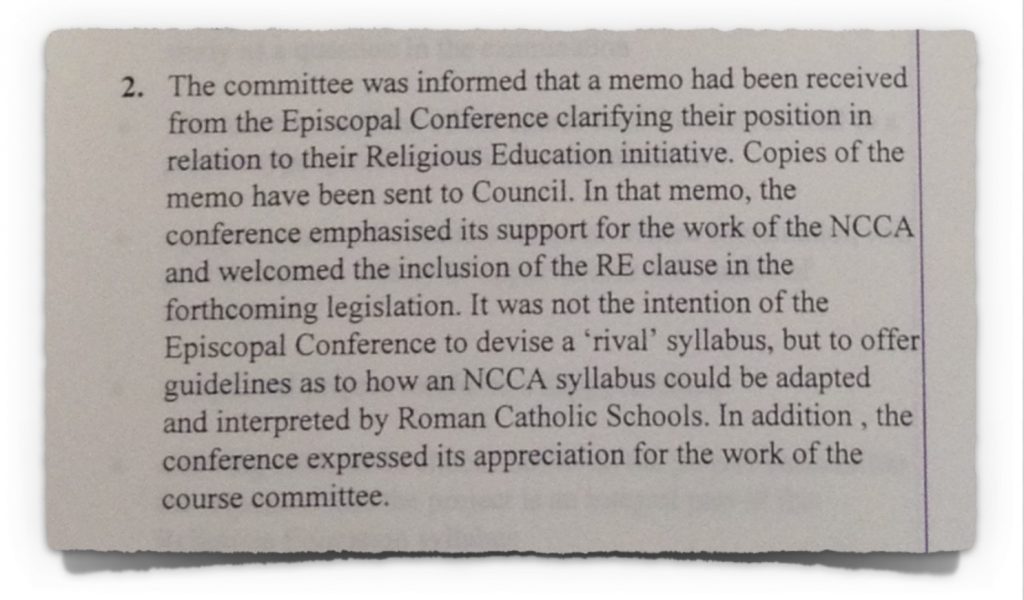
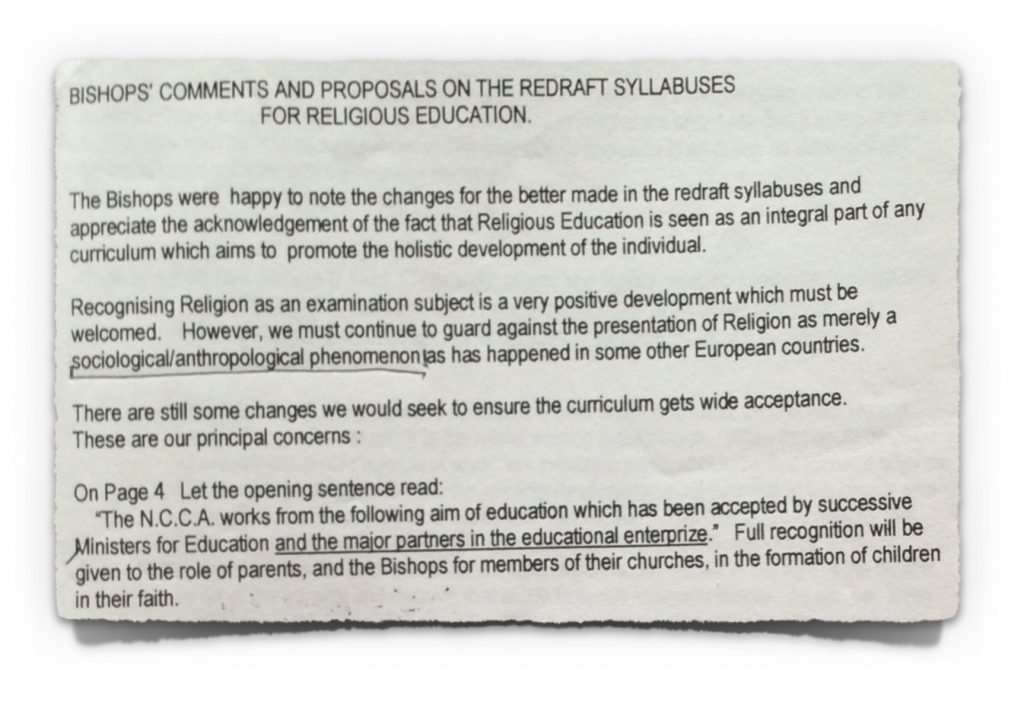
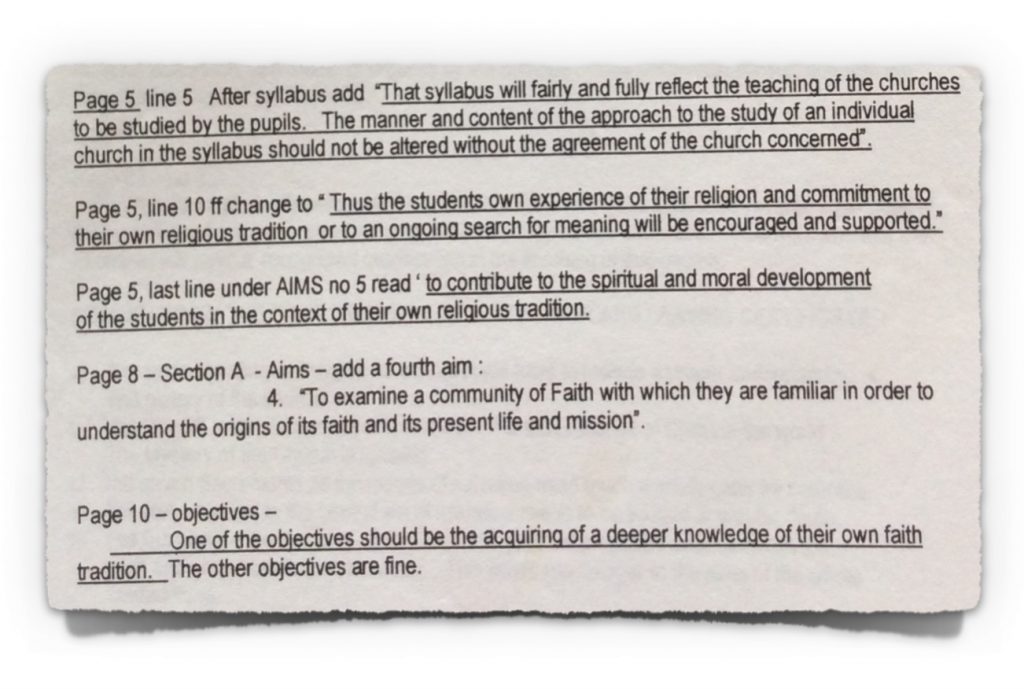
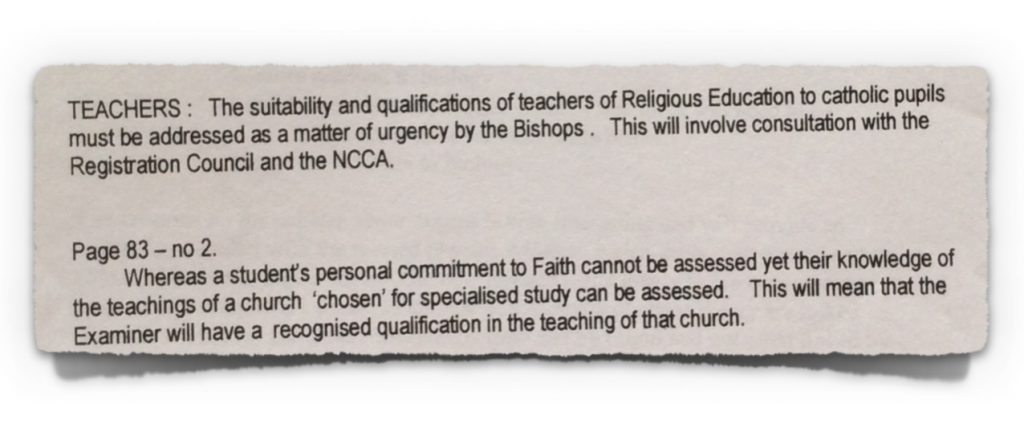

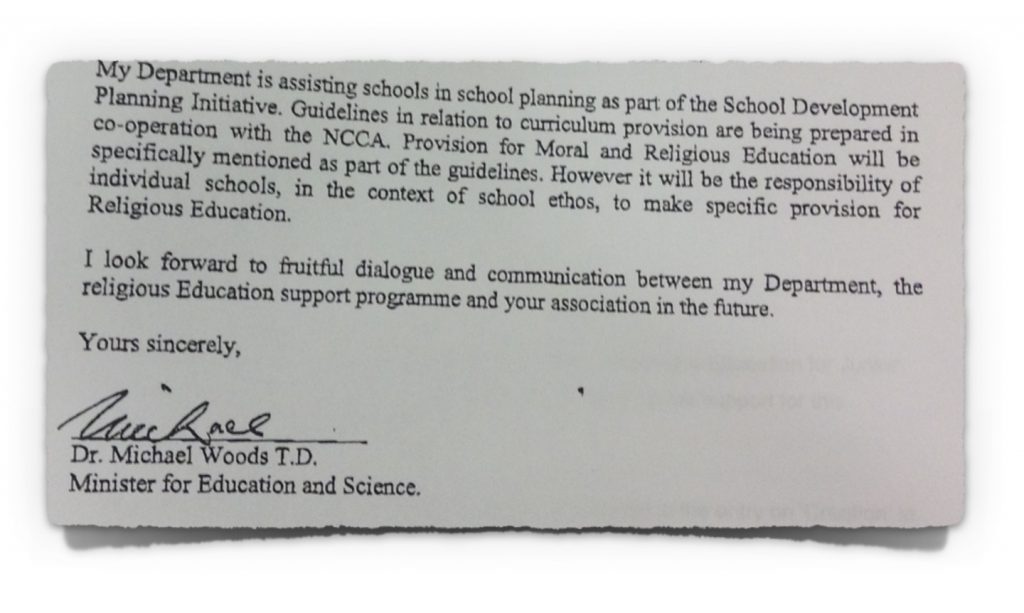






0 Comments
No comments!
There are no comments yet, but you can be first to comment this article.